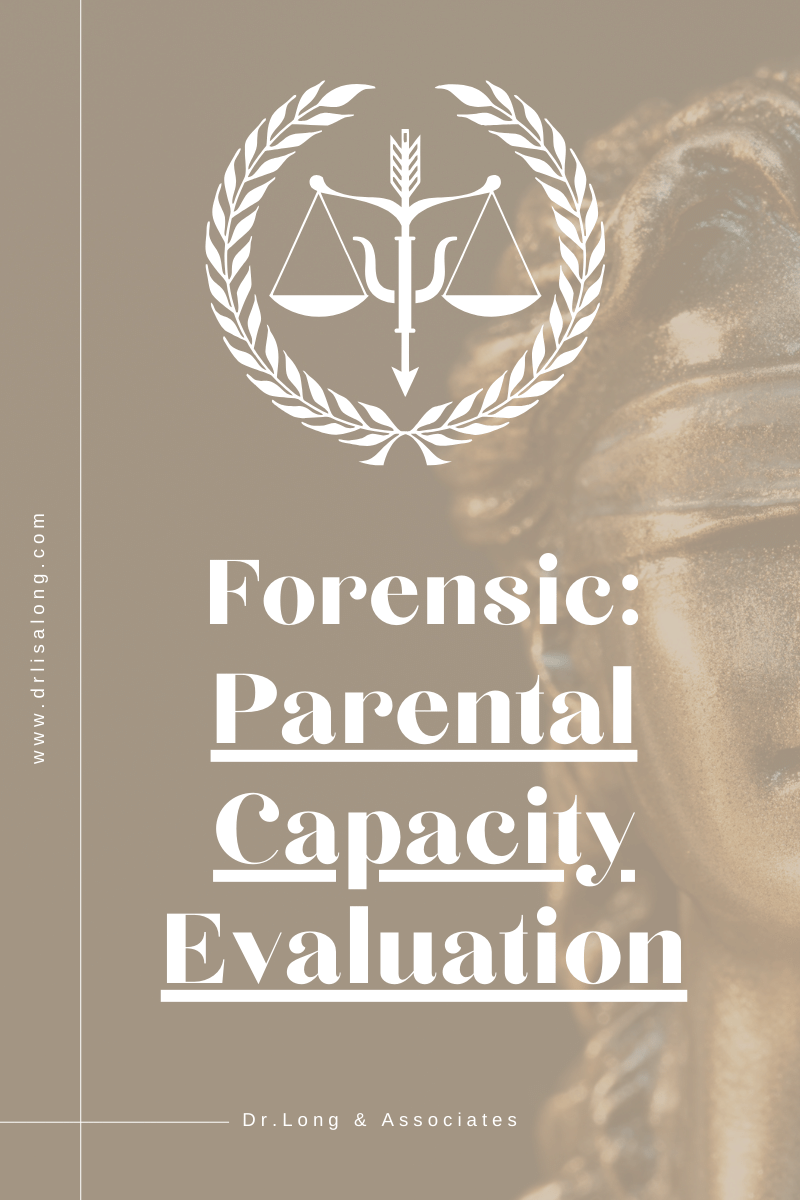
Dr. Long & Associates present at the American Academy of Forensic Sciences.
Dr. Lisa Long, PsyD, owner and lead forensic psychologist at Dr. Long & Associates, and Dr. Marlena M. Ryba, PhD, a distinguished forensic psychologist and esteemed researcher at Dr. Long & Associates, recently presented their groundbreaking research at the American Academy of Forensic Sciences (AAFS) 2025 conference.

What Can Be Used Against You in a Custody Battle?
What can be used against you in a custody Battle?
Dr. Long and Dr. Ryba have long been asked by both parents and legal professionals what factors are crucial in assessing parental capacity and influencing custody determinations. Drawing on their extensive experience and a thorough literature review, they present a comprehensive blueprint—a guide for anyone navigating custody evaluations, whether as a parent, guardian ad litem, or legal advocate. This guide serves two critical purposes: it provides parents with a framework to honestly evaluate and improve their own parenting capabilities, and it offers a pathway for those struggling with a co-parent whose severe issues may compromise child safety, helping them advocate effectively within the legal system

Parental Alienation Expert | Family Court Guide
Parental alienation is a critical issue in high-conflict custody cases, where one parent manipulates a child to reject the other without valid reasons. This comprehensive guide explores evidence-based strategies for identifying parental alienation, distinguishing it from estrangement, and navigating family court evaluations. Learn about expert methods, including interviews, behavioral observations, communication analysis, and the role of third-party reports, to protect the child’s best interests and ensure fair custody outcomes.

Parental Capacity Evaluation Guide
A parental fitness evaluation is a process in which a court or other authority assesses the ability of one or both parents' ability to provide for their child's physical, emotional, and mental well-being. This evaluation typically occurs in the context of child custody cases, adoption proceedings, or other legal disputes involving the care of a minor. The evaluation may consider factors such as the parent's living conditions, financial stability, criminal history, drug use, and other relevant information.
-
April 2025
- Apr 10, 2025 Testamentary Capacity Evaluations for Estate Planning Apr 10, 2025
-
March 2025
- Mar 31, 2025 Mitigating Circumstances Evaluation | Nationwide Expertise Mar 31, 2025
- Mar 30, 2025 Competency to Stand Trial Evaluations | Nationwide Expertise Mar 30, 2025
- Mar 20, 2025 CCA vs. PCE: Key Differences in Family Law Evaluations Mar 20, 2025
- Mar 11, 2025 ¿Qué Es la Visa U? ¿Qué Es la Visa T y Quiénes Califican? Mar 11, 2025
- Mar 10, 2025 Do You Need an Expert Witness Forensic Psychologist? Mar 10, 2025
-
February 2025
- Feb 21, 2025 Dr. Long & Associates present at the American Academy of Forensic Sciences. Feb 21, 2025
-
January 2025
- Jan 14, 2025 Can you sue someone for emotional distress? A Guide to Psychological Injury Evaluations Jan 14, 2025
-
December 2024
- Dec 16, 2024 What Can Be Used Against You in a Custody Battle? Dec 16, 2024
- Dec 11, 2024 Expert Guide to Psychosexual Evaluations, Assessments, and Court-Ordered Analysis Dec 11, 2024
- Dec 10, 2024 Parental Alienation Expert | Family Court Guide Dec 10, 2024
-
October 2024
- Oct 22, 2024 How Defense Expert Consultants Strengthen Military Court-Martial Defense Oct 22, 2024
-
July 2024
- Jul 15, 2024 Spanish Speaking Asylum Seekers | Immigration Evaluations Jul 15, 2024
- Jul 15, 2024 Psychological Evaluation for Extreme Hardship Waivers (I-601, I-601A, I-212) Jul 15, 2024
-
March 2024
- Mar 29, 2024 Parental Capacity Evaluation Guide Mar 29, 2024
- Mar 23, 2024 Parent Coordinator: A Crucial Role in High-Conflict Custody Evaluations Mar 23, 2024
- Mar 2, 2024 What to Expect from a Court-Ordered Psychological Evaluation Mar 2, 2024
-
February 2024
- Feb 19, 2024 T-Visa Immigration Process: How a Psychological Evaluation Can Help Feb 19, 2024
- Feb 19, 2024 Expert Psychological Evaluations for Asylum (I-589) – Start Today Feb 19, 2024
- Feb 3, 2024 Guía de evaluación psicológica USCIS N-648 Feb 3, 2024
-
January 2024
- Jan 19, 2024 USCIS N-648 Evaluation - Medical Disability Waiver Jan 19, 2024
- Jan 18, 2024 I 918 U Visa Application and Evaluation Guide Jan 18, 2024
-
October 2023
- Oct 23, 2023 Psychological Evaluation for VAWA (I-360) – Support for Survivors Oct 23, 2023
-
September 2023
- Sep 15, 2023 Fitness for Duty Evaluation - Comprehensive Guide Sep 15, 2023
-
August 2023
- Aug 16, 2023 Enhancing Parental Fitness With (ACEs) Informed Parenting Education Programs Aug 16, 2023
- Aug 2, 2023 Expert Witness Forensic Psychologist | Non-Testifying Role Aug 2, 2023
-
July 2023
- Jul 20, 2023 Understanding Forensic Evaluations | Document Review Jul 20, 2023
- Jul 7, 2023 Forensic Psychologist Dr. Lisa Long: Featured Guest on Nancy Grace's Crime Stories Podcast Jul 7, 2023
-
March 2023
- Mar 20, 2023 Associate Profile: Simona Atanasova Mar 20, 2023
- Mar 1, 2023 Criminal Responsibility | Psychological Evaluation and Assessments in Charlotte NC Mar 1, 2023
-
February 2023
- Feb 23, 2023 Fitness for Duty Evaluation - Dr. Lisa Long Feb 23, 2023
- Feb 6, 2023 Job Posting | Psychological Associate | Charlotte, NC Feb 6, 2023
- Feb 6, 2023 Dr. Lisa Long In the news Feb 6, 2023
-
August 2016
- Aug 7, 2016 10 warning signs of Dyslexia and 5 reasons it may be an advantage Aug 7, 2016
